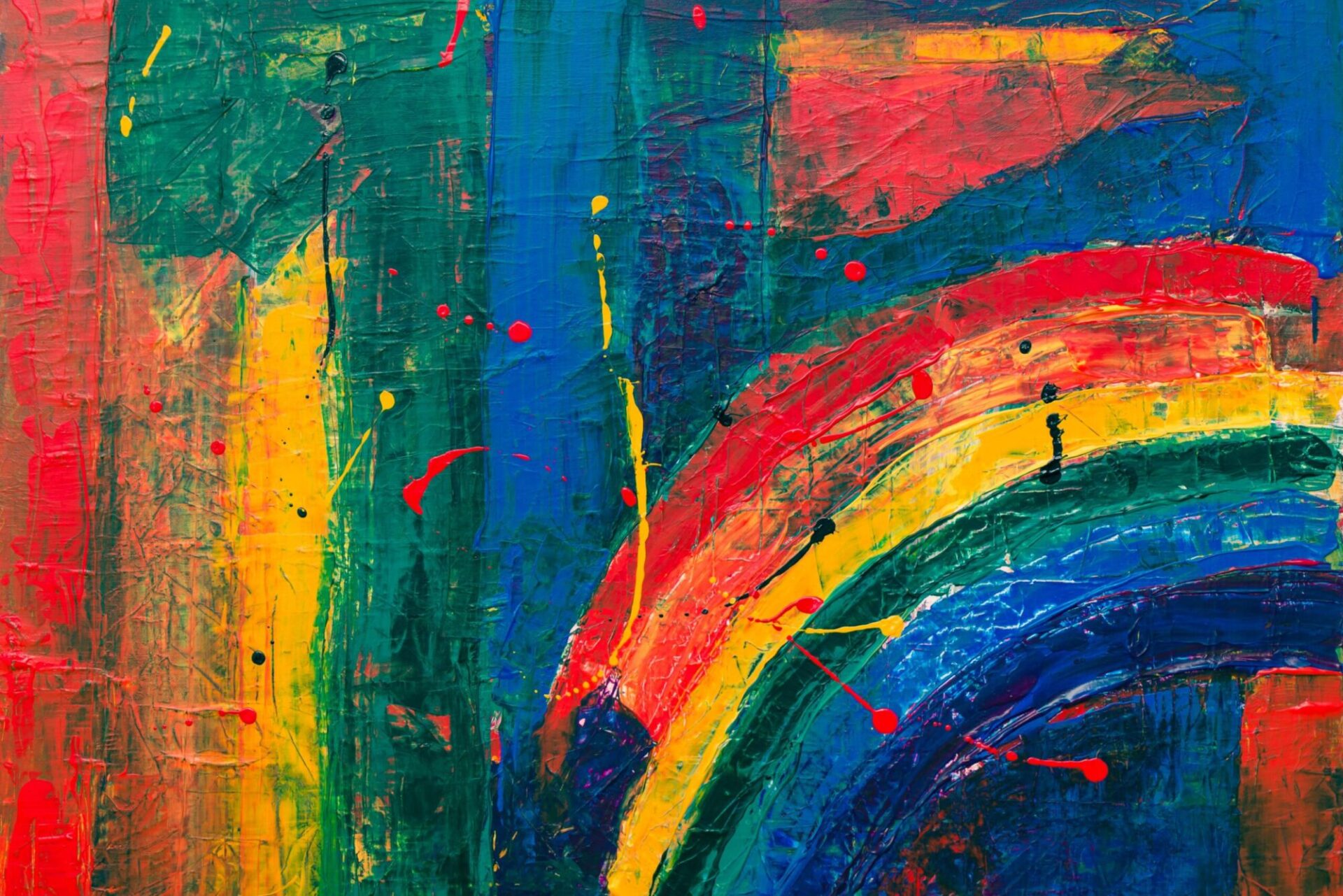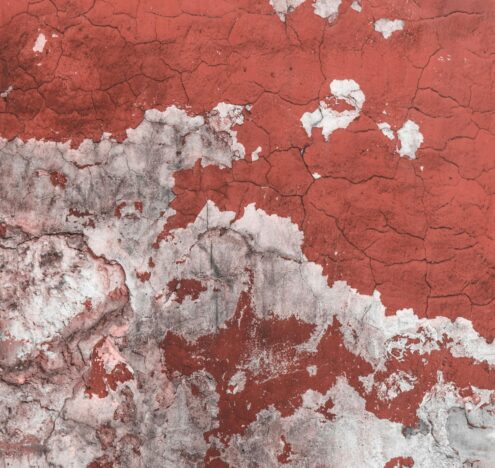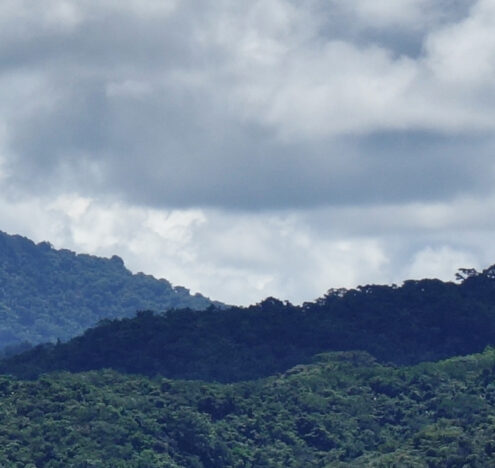One calm evening last November, Kwaku Frimpong was heading to the premiere of Black Panther in Accra, Ghana’s capital city, when a policeman stopped their Uber. Frimpong thought it was one of the regular police checkpoints in the city, but after the officer peered into the car and saw them dressed in a white blouse and scarf, he ordered the driver to pull over. “He started asking where I am going dressed like that. And I’m like, officer, am I carrying any contraband? Is there something on me that you are going to charge me for? If not, please search the car and go,” the 27-year-old told Inkstick.
The officer started to insult and search Frimpong in an intrusive manner. He made them take off their shoes, headscarf, and other clothing. By the time the officer was done, Frimpong stood stripped in the street. “After the police made me take off almost every article of clothing on me, I felt really small. The way the search was done and the language they used too…” Frimpong said, coughing.
Frimpong’s experience is hardly an isolated incident.
Advocates face an information battle. Media outlets regularly publish biased reports against LGBTQ people and expose activists to risk.
In August 2021, the Promotion of Proper Human Sexual Rights and Ghanaian Family Values bill — legislation targeting the LGBTQ community with imprisonment and conversion therapy — was proposed to the Ghanaian parliament. The bill awaits a second reading but its introduction has sparked a wave of harassment and violence against the LGBTQ community from law enforcement agents and citizens alike.
The bill seeks to impose a prison sentence on people caught engaging in homosexual activities, people who identify as LGBTQ, and activists who speak for the rights of LGBTQ persons. It also supports conversion therapy, a practice that inflicts psychological torture on the recipient, according to Amnesty International.
The proposed law has faced an outcry from international human rights observers and other international actors. The US ambassador weighed in, arguing that the bill could further hurt Ghana’s free-falling economy. In the country, though, while the law is still in limbo, there has been a marked increase in violence against the queer community including cases of harassment and direct attacks.
Ghana’s legal crackdown on homosexuality follows a wave of similar legislation across the continent. Ghana’s West African neighbors Nigeria, Uganda, and other African countries have already passed laws prohibiting homosexuality. There have been widespread cases of harassment, mass arrests, and other forms of attack against people suspected to be queer across the continent. Earlier this month in Kenya, 25-year-old LGBTQ activist, Edwin Chiloba was strangled to death and his body stuffed in a metal box.
“A TRAUMATIC EXPERIENCE”
People in the community describe living on their toes, in a constant state of precarity and fear. Even while the law has not yet passed, they face threats from extrajudicial law enforcement agents and civilians.
Davis Mac-Iyalla, the executive director of Interfaith Diversity Network of West Africa (IDNOWA), said the bill has led to the rejection of queer persons by their families. “Many LGBTQI persons have been rejected by their own families, and some have been kicked out of employment because colleagues think they look feminine or gay. Mob culture and blackmailing of those suspected to be homosexuals continue to be a lucrative business for hate gangs, some have been excommunicated by their faith institution,” he said. “Others are too scared to touch religion after seeing their faith leaders in public support the bill.”
Esther, a 25-year-old woman who asked for her identity to be kept anonymous for fear of retribution, said she had to leave her house to escape her uncle and brother who wanted to hurt her to “heal” the family name last year. “I was suddenly homeless and I couldn’t go where people knew me or my family. I moved from safe house to safe house thanks to queer allies,” she paused as she recalled the traumatic experience.
“DEVELOPING A SAFETY MECHANISM”
Activists and advocacy groups who speak for LGBTQ rights also face assault. In August 2022, an activist was held hostage by seven homophobic men and was brutally beaten until a ransom was paid. “One of the challenges we encounter is people getting hostile anytime you come out to speak about such subjects. The fact that our organization is self-funded makes it difficult to fight the targeted hate that is usually unleashed on us. And because I am not queer myself, there is always the retort of them saying you are doing this for monetary gains, which discredits the message you are pushing,” Justice Okai-Allotey, the communications officer for the Humanists Association of Ghana said.
Frimpong has developed a safety system to protect them as past experiences with Ghanaian police officers have planted a deep-seated distrust for state authorities. “I have been conscious about the spaces I am going to, if I’m going out, I don’t want to go out alone. I want to make sure I have a friend with me before I step out. All of these are just mechanisms, they are just ways I protect myself so I don’t put myself in a situation where I can be harassed by the police or someone else,” they said. “I always come out of that experience very tense and on the edge. Little things can trigger me.”
RESISTING THE BILL
Advocates face an uphill task due to meager resources to organize and engage policymakers. They also face an information battle: Mac-Iyalla described the media as “uncooperative” and said outlets regularly publish biased reports against LGBTQ people and expose activists to risk. But they do the work regardless. “IDNOWA has taken a lead in resisting the anti-gay bill by organizing stakeholder engagements with religious and traditional leaders to educate them on the implications of the bill. We make an appearance in Parliament at the public hearing to defend our memorandum. We have taken our advocacy to the attention of the national, regional, and international committees. We are actively lobbying parliamentarians to see the defeat of this bill,” Mac-Iyalla said.
Okai-Allotey added that they need more collaborations with other African countries that fought similar struggles. “Once this bill succeeds, what else would they be targeting as a minority,” he asked. “This bothers me a lot.”
Meanwhile, Esther believes there have been advantages despite the situation’s grimness. She said it came with an opportunity for growth, which has helped the community to thrive. “Last year, there were a lot of press conferences, organizations coming together to work and we put our differences aside…it has also forced us into a new level of resilience”
Now, Frimpong is leading campaigns through Drama Queens, a Ghana-based nonprofit that is focused on changing the status quo, sensitizing community members, and enlightening Ghanaians about the queer community and how they aren’t dissimilar to people of other gender or sexual orientations. “I am fighting for myself and the generation coming after me. I am always going to remain hopeful,” they said.





















